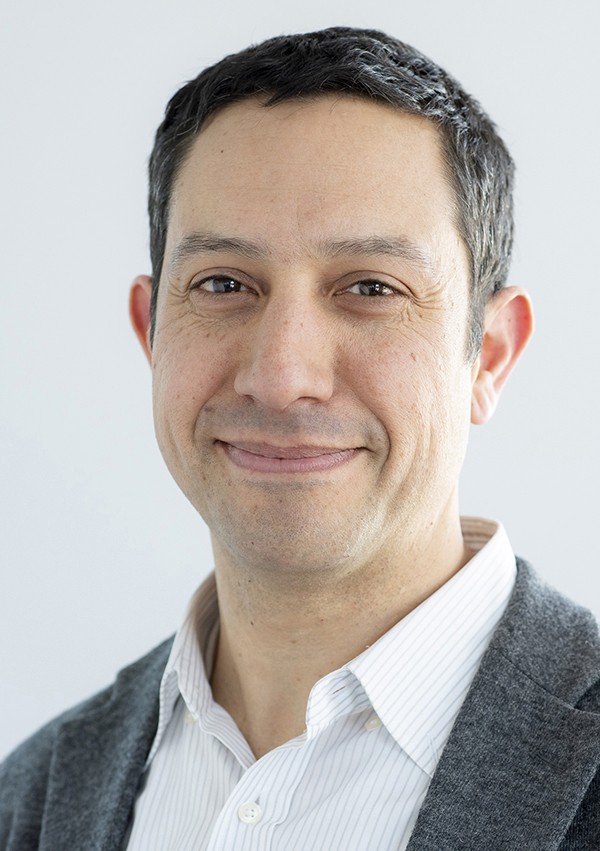Hernandez wins BRITE Fellow award for engineered living materials
Imagine if the walls in your home were alive, and had the ability to sense deterioration and self-repair before cracking.
That’s one of the potential applications of engineered living materials, which is the focus of the National Science Foundation BRITE Fellow award received by Christopher Hernandez, professor in Cornell’s Sibley School of Mechanical and Aerospace Engineering.
The Boosting Research Ideas for Transformative and Equitable Advances (BRITE) Fellow award, was announced March 31 and comes with $1 million in research funding from the National Science Foundation’s Division of Civil, Mechanical and Manufacturing Innovation. The award differs from traditional funding sources by focusing on individual researchers, allowing them to define their own high-risk vision with potentially transformative impact.
Hernandez is one of three researchers in the nation named to the inaugural class of BRITE Fellows.
Engineered living materials integrate living organisms such as bacteria, fungi and microalgae to make or maintain the material. And while scientists and engineers like Hernandez are only beginning to establish the foundations of the field, the aim is to create materials that can self-assemble, self-repair or possess other traits that mimic biological functions.
Hernandez and his laboratory are known for their studies of the material properties and remodeling of bone, a naturally occurring, rigid living material. Hernandez will leverage that expertise in the BRITE Fellow award to establish fundamental scientific and design approaches to make engineered living materials rigid enough to be used to make vehicles, buildings and commercial products.
“The BRITE Fellow award will allow our team to venture outside our expertise and perform curiosity driven investigations in engineered living materials,” said Hernandez, who is also an adjunct scientist at the Hospital for Special Surgery. “The field of engineered living materials is currently focused on soft materials and synthetic biology. Our project instead focuses on rigid, load-carrying materials that are more common in civil, mechanical and manufacturing engineering.”
Another component of Hernandez’s BRITE Fellow award includes building a network of faculty to coordinate mentorship and advocacy for students from groups underrepresented in engineering, with the goal of increasing the national talent pool of scientists and engineers.


